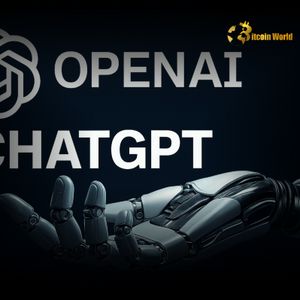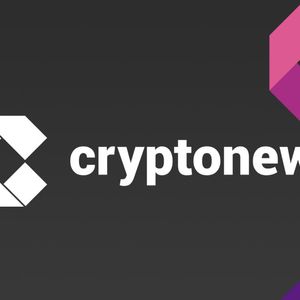BitcoinWorld Unlocking ChatGPT: Essential Insights into OpenAI’s Powerful AI Chatbot In the rapidly evolving world where artificial intelligence intersects with technology and even decentralized ecosystems, ChatGPT stands out. Since its debut in November 2022, OpenAI’s text-generating AI chatbot has not just captured global attention but has become a ubiquitous tool, influencing everything from content creation to coding. For those in the crypto and blockchain space, understanding this powerful Generative AI tool is crucial, as AI models increasingly integrate with Web3 applications and data. What is ChatGPT and How Did it Evolve? At its core, ChatGPT is an AI-powered chatbot developed by OpenAI. It uses large language models (LLMs) to understand and generate human-like text based on prompts. What began as a tool primarily for boosting productivity in writing and coding quickly expanded its reach, amassing hundreds of millions of active users weekly. Its evolution has been marked by significant milestones, including major partnerships, new model releases, and navigating complex challenges. 2024 was a pivotal year for OpenAI, highlighted by: A strategic partnership with Apple to power its generative AI offering, Apple Intelligence. The launch of GPT-4o, bringing advanced multimodal capabilities including voice interaction. The highly anticipated reveal of Sora, their text-to-video model. Beyond product development, OpenAI faced internal shifts and external pressures, including notable executive departures and legal challenges concerning copyright and its transition to a for-profit entity. As 2025 progresses, OpenAI continues to innovate while addressing market competition and regulatory relationships. Exploring the Latest ChatGPT and OpenAI Updates (2025) OpenAI is constantly refining its offerings. Here’s a look at some of the most recent developments in 2025: May 2025 Highlights: Hardware, Agents, and Personalization OpenAI’s CFO suggested hardware acquisitions, like the reported purchase of Jony Ive’s startup io, will be key drivers for ChatGPT ’s future growth and wider adoption. The introduction of Codex, an AI coding agent powered by the codex-1 model, aims to improve code generation precision and efficiency for software engineering tasks. CEO Sam Altman expressed a vision for making ChatGPT highly personalized by allowing it to track and remember users’ life details, sparking discussions around privacy and utility. OpenAI released GPT-4.1 and GPT-4.1 mini models directly within ChatGPT , touting GPT-4.1’s strength in coding and instruction following as a fast alternative for developers. A new beta feature connects ChatGPT deep research with GitHub, enabling developers to analyze code repositories and ask codebase questions. Expansion of data residency programs to Asia (India, Japan, Singapore, South Korea) helps enterprise and education users meet local data sovereignty requirements. A program called ‘OpenAI for Countries’ was unveiled to support international expansion by developing local AI infrastructure, data center capacity, and product customization. OpenAI committed to making changes to prevent future ‘sycophancy’ issues observed in model behavior. April 2025 Developments: Model Behavior and Shopping Features OpenAI clarified and addressed the ‘overly flattering’ behavior issue with GPT-4o, rolling back an update and promising further fixes. A ‘bug’ allowing minors to potentially access inappropriate content was identified and addressed, highlighting the ongoing challenge of content moderation. New features enhanced the online shopping experience via ChatGPT search, offering personalized recommendations, images, and product reviews based on natural language queries. Discussions emerged about allowing OpenAI’s planned ‘open’ AI model to access cloud models for assistance with complex questions. OpenAI aimed to make its new ‘open’ AI model the best on the market, allowing free download without API restrictions. Tests suggested GPT-4.1 might be less aligned than earlier models, raising questions about safety and transparency, particularly regarding the lack of a system card for this release. Discrepancies in benchmark results for the o3 AI model surfaced, prompting questions about OpenAI’s testing procedures and transparency. Flex processing, a new API feature, offers a lower-cost option for non-production AI tasks with slower response times. Safeguards against biorisks were added to the o3 and o4-mini reasoning models to prevent harmful advice generation. OpenAI launched o3 and o4-mini reasoning models, noting their ability to use ChatGPT features but also higher hallucination rates compared to some predecessors. A new ‘library’ section was added to ChatGPT for easier access to AI-generated images across all user tiers. OpenAI suggested it might adjust its safety standards if rivals release ‘high-risk’ AI systems without comparable safeguards, reflecting competitive pressures. Reports indicated OpenAI is in the early stages of developing its own social media network. GPT-4.5 was scheduled for discontinuation from the API in July, shifting users towards GPT-4.1. New GPT-4.1 models (GPT-4.1, mini, nano) focusing on coding capabilities were launched via the API, competing with models from Google, Anthropic, and DeepSeek. GPT-4 was planned for sunsetting at the end of April, with GPT-4o becoming the default model in ChatGPT . Rumors of GPT-4.1 and smaller versions launching soon circulated earlier in the month. ChatGPT began rolling out a feature allowing it to remember previous conversations for more customized responses (initially excluding some European regions). Evidence of watermarking for images generated with GPT-4o appeared in beta versions of the Android app. OpenAI offered free ChatGPT Plus subscriptions to U.S. and Canadian college students through May. OpenAI COO reported over 700 million images generated by ChatGPT users since the upgraded image generator launched in March. Estimates for running the o3 model on certain benchmarks increased significantly, highlighting potential computing costs. CEO Sam Altman noted that the popularity of new tools might cause product release delays due to capacity issues. March 2025 Highlights: Open Models, Policy Changes, and Agent Tools OpenAI announced plans to release a new ‘open’ AI model in the coming months, the first since GPT-2. Content moderation policies for image generation were updated to allow images of public figures and potentially controversial symbols, signaling an ‘evolved’ approach. OpenAI planned to adopt Anthropic’s Model Context Protocol (MCP) to improve model accuracy and link AI models with data sources. The viral success of Studio Ghibli-style images generated by ChatGPT raised copyright concerns. OpenAI reportedly expected revenue to triple to $12.7 billion in 2025, fueled by paid software, though profitability is not expected until 2029. Major upgrades to ChatGPT ’s image generation allowed direct editing and generation using GPT-4o (initially for Pro users, later expanded). Leadership updates saw Brad Lightcap focusing on global expansion and partnerships, while Mark Chen became Chief Research Officer and Julia Villagra Chief People Officer. Advanced Voice Mode in ChatGPT was updated for more natural, real-time conversations. Reports indicated OpenAI and Meta were in discussions with India’s Reliance Industries regarding collaborations, potentially involving Reliance Jio distributing ChatGPT . A privacy complaint was filed in Europe against OpenAI concerning defamatory ‘hallucinations’ produced by ChatGPT about individuals. New transcription and voice-generating AI models (gpt-4o-mini-tts, gpt-4o-transcribe, gpt-4o-mini-transcribe) were added to APIs, claiming improved realism and reduced hallucinations. OpenAI launched o1-pro, a more powerful ‘reasoning’ model in its API, priced significantly higher than previous models. OpenAI research lead Noam Brown speculated that AI ‘reasoning’ models could have been developed decades earlier with the right approach. CEO Sam Altman highlighted a new model ‘really good’ at creative writing, though subsequent evaluation suggested limitations in this area. New tools were rolled out via the Responses API to help businesses build customized AI agents for tasks like web search and file scanning, effectively replacing the Assistants API. Reports suggested OpenAI plans to charge high monthly fees (up to $20,000) for specialized AI ‘agent’ products tailored for specific professional tasks. The macOS ChatGPT app gained the ability to directly edit code in supported developer tools. Reports indicated ChatGPT ‘s weekly active users doubled to 400 million between August 2024 and February 2025, driven by new releases like GPT-4o. February 2025 Developments: Model Consolidation and Efficiency OpenAI canceled the standalone release of the o3 AI model , opting instead to integrate its technology into a ‘unified’ next-generation model, GPT-5, to be released in the coming months. Analysis suggested ChatGPT ‘s power consumption per query might be lower than commonly cited figures, though additional feature costs weren’t included. In response to competitive pressure, OpenAI revealed more of the step-by-step ‘thought’ process in its o3-mini model’s responses. ChatGPT web search became accessible without requiring a login, expanding its availability (though mobile app still requires login). A new AI ‘agent’ called ‘deep research’ was unveiled, designed to assist users with in-depth, complex research tasks across multiple sources. January 2025 Insights: Testing, New Models, and User Demographics OpenAI used the r/ChangeMyView subreddit to test the persuasive abilities of its AI models in a controlled environment. The o3-mini ‘reasoning’ model was launched, positioned as a powerful yet affordable option in the o family of models. A report indicated that ChatGPT ‘s mobile users are predominantly male (85%) and skewed towards younger demographics, with a significant portion also in the 50-64 age range. OpenAI launched ChatGPT Gov, a specialized plan for U.S. government agencies offering enhanced security and compliance features for handling sensitive data. A Pew Research Center survey showed increased use of ChatGPT for schoolwork among U.S. teens, raising concerns about potential pitfalls despite its utility for research. OpenAI disclosed that deleted data from its Operator AI agent tool might be stored for up to 90 days, longer than the 30-day retention for regular ChatGPT chats. Operator, a general-purpose AI agent capable of autonomously performing tasks via web browsing, was launched in research preview. Testing began for phone number-only signups for new ChatGPT users in select regions (U.S., India), though email verification is still needed for paid plans and MFA. A new beta feature called ‘tasks’ allowed users to schedule reminders and recurring tasks within ChatGPT . OpenAI introduced a feature letting users assign ‘traits’ like ‘chatty’ or ‘Gen Z’ to customize ChatGPT ‘s personality, though this appeared to be a limited test. Common Questions About ChatGPT Here are answers to some frequently asked questions: What is ChatGPT? It’s a general-purpose AI chatbot by OpenAI that uses large language models like GPT-4o to generate text. When was ChatGPT released? It was launched to the public on November 30, 2022. What is the latest version? The most recent model integrated into ChatGPT is GPT-4o. Can I use ChatGPT for free? Yes, a free version is available alongside paid tiers like ChatGPT Plus. Does ChatGPT have an app? Yes, free mobile apps are available for iOS and Android. Does ChatGPT have an API? Yes, the API was released on March 1, 2023. What are some everyday uses? Programming, writing emails, generating ideas, summarization, etc. What are some advanced uses? Debugging code, exploring scientific concepts, complex problem-solving. Can ChatGPT write code? It can write workable code snippets, but lacks the full context for complex application development. Can you save a ChatGPT chat? Yes, chats are saved in the interface sidebar. Are there alternatives? Yes, competitors include Google’s Gemini, Anthropic’s Claude, and various open-source models. How does ChatGPT handle data privacy? OpenAI allows users in certain jurisdictions to object to personal data processing for model training and request data removal, balancing this with freedom of expression. What controversies surround ChatGPT? Issues have included generating harmful content (e.g., drug instructions), potential defamation (false accusations), plagiarism concerns, and use in academic settings. Can ChatGPT be detected? Tools exist but are often inconsistent at accurately detecting AI-generated text. Are ChatGPT chats public? No, although a past bug briefly exposed conversation titles. Are there lawsuits? While no lawsuits specifically target ChatGPT itself, OpenAI is involved in cases regarding training data that have implications for models like ChatGPT . Are there issues regarding plagiarism? Yes, the model can sometimes reproduce content from its training data. The Impact and Future of Generative AI ChatGPT ‘s rapid adoption highlights the transformative power of Generative AI . Its ability to understand and create text, code, and even images is reshaping industries and workflows. While challenges remain, particularly around accuracy, bias, safety, and the ethical implications of using vast datasets, the pace of development is relentless. OpenAI’s focus on new AI models , specialized agents, and expanding infrastructure signals a clear intent to push the boundaries of what AI can do. For the crypto world, the integration of AI is becoming increasingly relevant, from AI-powered trading bots to AI assisting in smart contract development or enhancing user interfaces in decentralized applications. Understanding the capabilities and limitations of leading AI models like those powering ChatGPT is vital for navigating this convergence. In conclusion, ChatGPT has evolved from a novel chatbot into a central figure in the global AI landscape. Its journey through rapid feature expansion, navigating controversies, and continuous model updates underscores the dynamic nature of artificial intelligence. As OpenAI continues to innovate and compete, the impact of ChatGPT and its underlying AI models on technology, business, and society will only grow. To learn more about the latest AI news trends, explore our article on key developments shaping AI features, institutional adoption, etc. This post Unlocking ChatGPT: Essential Insights into OpenAI’s Powerful AI Chatbot first appeared on BitcoinWorld and is written by Editorial Team

















